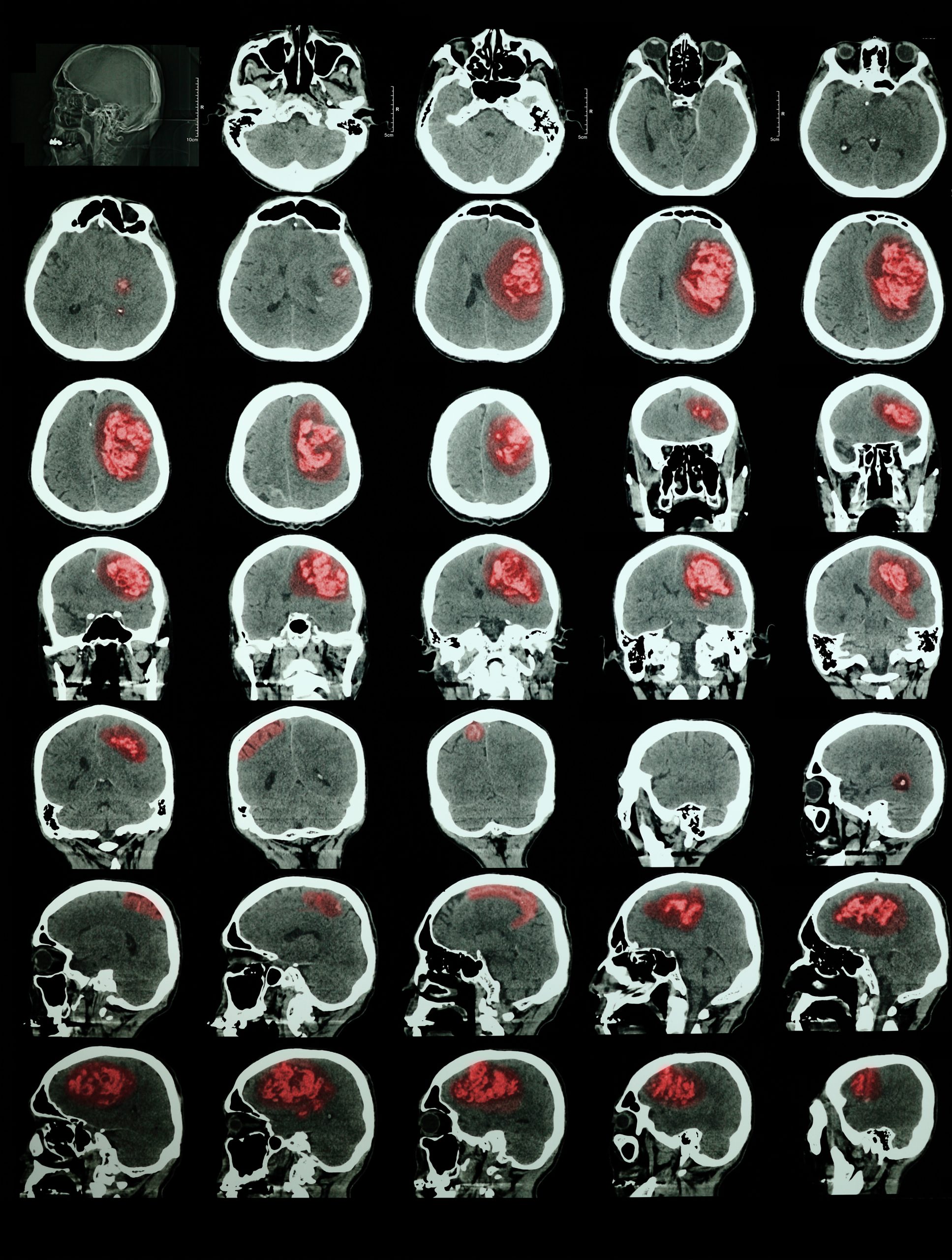Not all strokes are detectable or preventable, but there are situations in which a stroke is caused by medical error, abuse, or neglect. If you or your loved one suffered a stroke injury due to the negligence of someone else, contact a Regan Zambri Long stroke injury lawyer today.
The attorneys have over 100 years of combined experience and will help you navigate the claims process so you can focus on your recovery. There is no need for your and your family to pay for the mistakes of others. Allow the Regan Zambri Long stroke injury lawyers to fight for your rights and secure the maximum compensation for the injuries you suffered.
Contact Us Today to Schedule
A Free Consultation
A stroke is when the blood supply to part of your brain is interrupted or reduced, preventing your brain from getting oxygen and nutrients causing it to die within minutes of the stroke occurring. Stroke injuries can range from minor cognitive delays, like slurred speech, to permanent disabilities, like paralysis, and even fatal injuries, such as brain stem trauma.
Stroke injury victims face a long road toward physical, mental, and emotional recovery. The financial burden of a stroke injury comes from many different areas and can cripple the victim and their families. Hospitalization following a stroke can cost over $20,000 – and that doesn’t include rehabilitation, physical and occupational therapy, medications, and possible long-term care. As medical expenses pile on, many stroke injury victims cannot return to work right away, if ever, following the stroke. This leaves the victim and their family with increasing debt while having to manage the loss of an income.
If you or a loved one suffered a stroke due to medical negligence, a Stroke Injury Lawyer can help. You may be able to file a claim for compensation under DC personal injury law. We have a history of success in obtaining multimillion-dollar settlements and verdicts for clients.

A person’s blood is the provider of oxygen to the brain. Blood constantly flows from a person’s heart to every single area of the body, doling out oxygen and nutrients as it circulates. When there is a disruption in the blood flow to the brain, the brain can’t get the oxygen it needs. That is when a stroke happens.
Disruption of blood flow and lack of oxygen to the brain can happen in one of two ways – there will either be too much blood surrounding the brain, or not enough blood surrounding the brain. Keep that in mind when reading about the three main types of strokes:
Ischemic strokes happen when the blood supply to the brain gets blocked by blood clots or narrowing of the arteries. 87% of strokes are ischemic, making them the most common stroke a person can suffer. These types of strokes occur when blood clots form from an irregular heartbeat, like arrhythmia. Ischemic strokes can also be caused by problems with the victim’s heart valve, infection of the heart muscle, hardening of the arteries, blood-clotting disorders, and inflammation of the blood vessels.
Heart attacks can also lead to ischemic strokes in one of two ways – forming blood clots or causing hypotension (which is extremely low blood pressure) that reduces the blood flow to the brain.
This type of stroke happens when an artery in the brain leaks blood or ruptures. The blood from the damaged artery puts too much pressure on the brain and damages it. Two types of hemorrhagic strokes are:
Aneurysms, which are bulges in the artery that can stretch and burst, are a common cause of hemorrhagic strokes. High blood pressure is another common cause.
These are sometimes referred to as “mini strokes” and differ from ischemic and hemorrhagic because blood flow to the brain is only blocked for a few moments. These mini strokes serve mostly as a warning of a future, larger stroke and should be treated as an emergency just like an ischemic or hemorrhagic stroke. More than a third of TIA victims who do not seek treatment have a major stroke within one year of the TIA.
Ischemic, hemorrhagic, and TIA strokes are not always detectable. However, there are cases where a surgical mistake, a birth injury, medication error, or abuse may be the cause of the stroke you or your loved one suffered. If that is the case, you need a Regan Zambri Long medical malpractice attorney immediately. The lawyers will work to determine who is at fault for your injuries and will do everything they can to ensure you are properly compensated.
Although Washington DC is home to some of America’s top hospitals and medical personnel, malpractice still frequently occurs. Medically speaking, there are several ways strokes can occur from malpractice, including medication errors:
Strokes can also be the unintended consequence of surgical errors, as well. In general, strokes are a possibility following most surgeries. However, patients run a higher risk of stroke if the doctor makes an anesthesia error, or fails to treat an infection caused by the surgery. Your medical team also has a duty to follow up with patients after the surgery, making sure vital signs are normal.
Finally, misdiagnosis or failure to diagnose can lead to severe injuries following a stroke. If you seek medical treatment, the doctors are required to investigate thoroughly to rule out the possibility of a stroke. Failure to diagnose in a timely manner can lead to brain damage, paralysis, or even death.
Neonatal strokes are strokes in newborns, from birth up until they are 28 days old. Like many other strokes, not all neonatal strokes can be prevented. However, there are medical errors that can lead to an infant suffering a stroke at birth:
Negligence in nursing homes happens far too often in Washington DC and across the United States. If the nursing home staff fail to have check-ups for their patients illnesses, including strokes, can go undetected resulting in severe injuries. Stroke negligence of the elderly in nursing homes is abuse. If your loved one was neglected in a Washington DC nursing home and suffered a stroke, reach out to the Regan Zambri Long stroke injury lawyers today.
Strokes are not often linked to car accidents. However, recent studies have shown that head and neck injuries can increase the risk of stroke by three times. Car accident victims who suffered a traumatic brain injury are 86% more likely to suffer a stroke than accident victims who did not suffer a TBI. If you or your loved one were involved in a car accident and suffered a stroke due to the injuries from the accident, you have the right to financial compensation to help pay for your medical bills and lost wages. Contact a Regan Zambri Long stroke injury lawyer today for a free consultation to discuss all your legal options.
There are three different parts to the brain that can be affected by a stroke: the cerebrum, the cerebellum, and the brainstem.
The cerebrum takes up the top and front portions of your head and controls your movement, sensations, speech, thinking, reasoning, memory, vision, and emotions. It is divided in two – the right and the left hemispheres. When one or both sides of the cerebrum is affected by a stroke, the victim may be impaired in:
Your cerebellum is in the back of your head, underneath the cerebrum and helps control your body’s movement, coordination, and balance. If your brain lacked oxygen to the cerebellum for a period of time, the effects can include:
Finally, the brainstem is at the base of your brain above the spinal cord. The brainstem regulates heartbeat, blood pressure, and breathing. Because these are the most vital things to a person’s body, a brainstem stroke is the most severe and can be fatal. If you or your loved one suffered a stroke in the brainstem, the effects could be:

A: The first thing your Regan Zambri Long stroke negligence lawyer will do is determine which party or parties are at fault for your stroke injury. If you suffered a stroke due to medical malpractice, the parties at fault could be the physicians, nurses, or anesthesiologist. If your loved one suffered a stroke while in a nursing home, the parties responsible could be the doctors, nurses, or nursing home director. If your stroke injuries were the result of a brain injury from a car accident, your attorney will work to prove the other driver not only caused the accident, but the subsequent stroke as well.
The second step is to provide proof of negligence. In medical malpractice cases, the Regan Zambri Long stroke injury lawyers work with a team of medical consultants to prove that another competent medical expert would have treated you differently, avoiding the possibility of a stroke. If your stroke was caused by the injuries you sustained in a car accident, your lawyer will collect the police report, medical records, and witness testimonies to prove the stroke was a result of the accident caused by the other driver.
Next, your attorney will prove that the stroke was directly caused by the negligence of someone else. Washington DC is one of the five jurisdictions that still uphold contributory negligence laws. This means, if you had any responsibility in your injuries, even ten percent, then you cannot claim compensation for the injury.
Finally, your stroke injury lawyer will prove that the injury led to physical, mental, or emotional damages.
Regan Zambri Long has an extensive history of securing ample financial compensation for clients who suffered stroke injuries. Recently, the Regan Zambri Long stroke injury lawyers won an $11 million settlement for a woman who was left severely disabled following a stroke due to medical malpractice. The hospital failed to perform a routine pregnancy test on the woman before heart surgery. The Regan Zambri Long attorneys understand they can’t fix what happened to you or your loved one, but they will relentlessly fight for justice and your right to compensation.
A: According to a 1996 American Heart Association journal, the lifetime cost of a stroke injury patient can be over $200,000. If you had 30 years of inflation to the original cost estimate, a stroke injury victim could end up paying hundreds of thousands of dollars more in medical bills over their lifetime.
A: Strokes can happen to anyone at any time, regardless of age, sex, or race. While there are several universal symptoms of stroke, there are some that are experienced more by women. The most important thing to be aware of is that all these signs – in both women and men – will happen suddenly. The signs of stroke that present in both men and women are:
Women can experience additional symptoms when having an ischemic stroke:
Strokes in babies are not as easily detectable as they are in adults. Parents should keep an eye out for the following symptoms and seek medical care if your child is displaying the following: